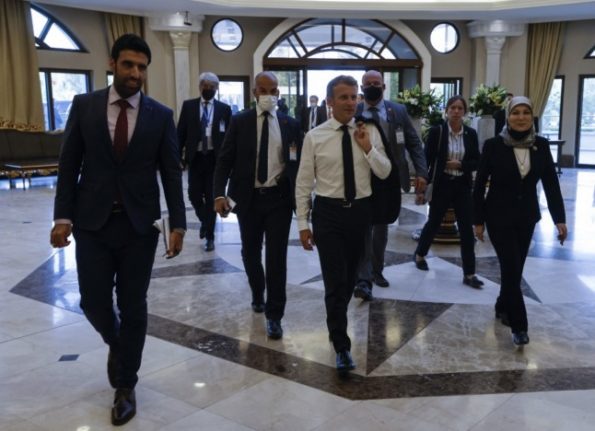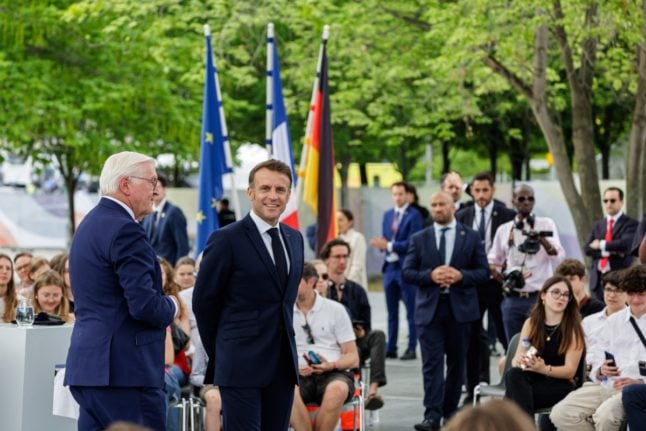“No matter what choices the Americans make, we will maintain our presence in Iraq to fight against terrorism,” Macron told a news conference in Baghdad where he attended a regional summit.
“We have the operational capacity to ensure this presence,” he added after the meeting, which has been overshadowed by the Taliban’s takeover of Afghanistan and Thursday’s suicide bombing in Kabul.
Earlier, Macron warned that the Islamic State group remained a threat.
“We all know that we must not lower our guard, because Daesh (IS) remains a threat, and I know that the fight against these terrorist groups is a priority of your government,” Macron said, after a meeting with Iraqi Prime Minister Mustafa al-Kadhemi in Baghdad ahead of a summit of Middle East leaders.

On Thursday, a blast at Kabul airport, where huge crowds had gathered in the hope of being getting onto an evacuation flight out of the country, killed at least 85 people.
The Afghanistan branch of Islamic State, Islamic State-Khorasan Province, has taken responsibility for the attack.



 Please whitelist us to continue reading.
Please whitelist us to continue reading.
So, why not stay in Afghanistan then ?